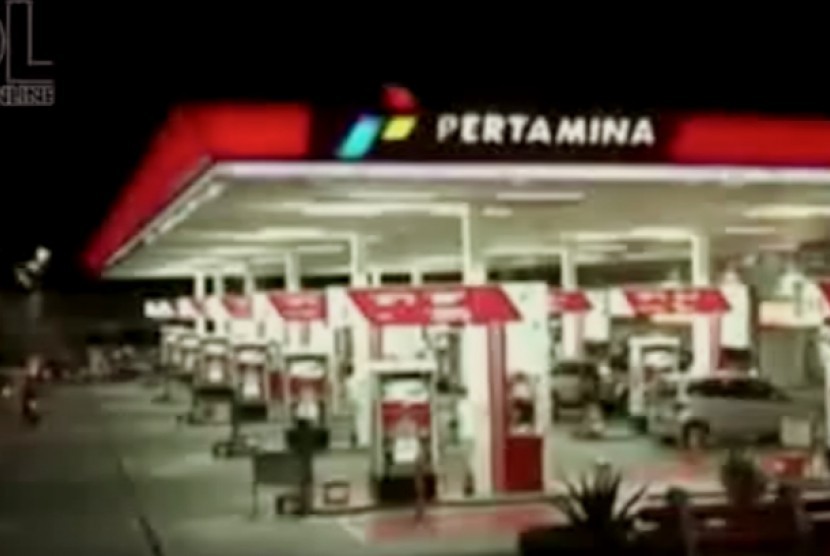REPUBLIKA.CO.ID, JAKARTA -- Indonesia's new administration plans a major expansion of oil storage and will construct more refineries as part of sweeping energy reforms that will also help in cracking down on corruption in the state oil trader.
Sworn in just six weeks ago, President Joko Widodo launched the overhaul of the scandal-tainted oil and gas sector last Friday by sacking the entire board of state oil giant Pertamina and pledging a comprehensive audit of its trading arm, Petral.
When completed, the plan to increase storage and refining capacity will allow Southeast Asia's largest economy to shift from buying gasoline and diesel on the opaque spot market to stable long-term contracts with foreign producers. That would also reduce opportunities for graft at Petral.
"With limited storage, all you can do is buy on the spot market and then you are at the mercy of the market," Ari Soemarno, a presidential adviser and former head of Pertamina, told Reuters.
Energy Minister Sudirman Said told reporters last week: "Every transaction that is hidden definitely has that potential (for corruption). Direct deals reduce that potential...and reduce the role of intermediaries."
Indonesia plans to add a minimum of 9.4 million barrels of new fuel storage capacity by 2019, an increase of around 40 percent, at a cost of 2.44 billion USD, Pertamina officials said.
The country, which is expected to become the world's largest gasoline importer by 2018, wants to increase its operational reserves to 30 days worth of fuel, up from the current 18-23 days.
In the longer term, Pertamina is looking to upgrade its six refineries to increase capacity to 1.5 million barrels per day from the current 1 million bpd. It is also considering investing in new refineries, despite not having built one since 1994.
The refinery and storage development plans are not new under President Widodo but have been held back for years by vested interests who profit from fuel imports, officials have said. Indonesia's oil and gas sector is the largest contributor to state income, making up an estimated 12 percent of state revenue this year.
Pushing aside middlemen
The president's plan will also likely sideline Hong Kong-based Pertamina Energy Trading Limited (Petral). The company, which conducts its trading business from Singapore, holds a near monopoly on the trading of billions of dollars worth of crude and oil products in and out of the former OPEC member.
Petral reported revenue of 31.5 billion USD and net profit of 47 million USD in 2011, the latest data provided on the company's website. Petral regularly buys gasoline, diesel and jet fuel from Malaysia's Petronas, Chinese oil trader Unipec, Royal Dutch Shell, and others. But the lack of transparency from its oil trades has raised concerns that transactions can be easily manipulated by what the president calls the oil mafia, which is believed to steal as much as 400 million USD a year, according to presidential adviser Soemarno.
Petral officials were not immediately available for comment. Oil traders in Singapore said they had not seen any major changes in Petral's operations.
"It is not in the interest of the current Indonesian government to have either outflows or inflows disrupted, unless there is evidence that a particular shipment is directly tainted and for now, there is none," said Thomson Reuters Oil Research & Forecasts (Asia) in a report.
Last week, State Enterprises Minister Rini Soemarno, who is the sister of Ari Soemarno, said she would consider relocating Petral to Indonesia from its offices in Hong Kong and Singapore, a move that could allow for better government oversight of the company. The energy ministry and the country's main anti-graft watchdog, the Corruption Eradication Commission, are planning separate audits of Petral to ensure no wrongdoing.
"So far, we have no conclusion about Petral. We are still waiting for recommendations," Energy Minister Said told Reuters on Monday.
The ministry has asked an independent team of experts to recommend specific government policies to clean up Petral, Pertamina and the rest of the energy industry. The report is due in six months.
"We want to build an institution that allows everything to be seen. Whatever (Petral) does... everyone will know," said Faisal Basri, the head of the energy ministry's oil and gas governance reform team.


